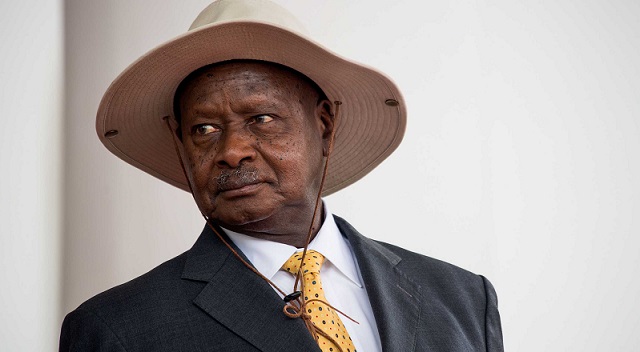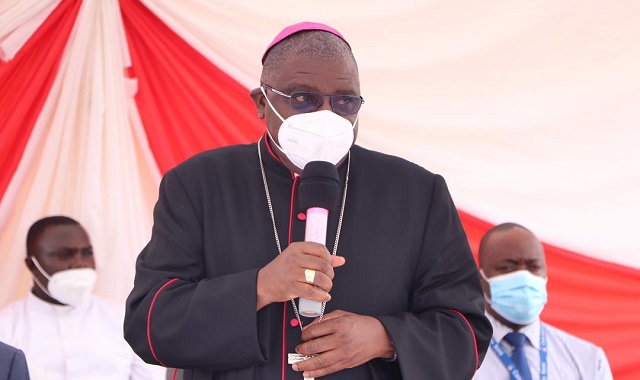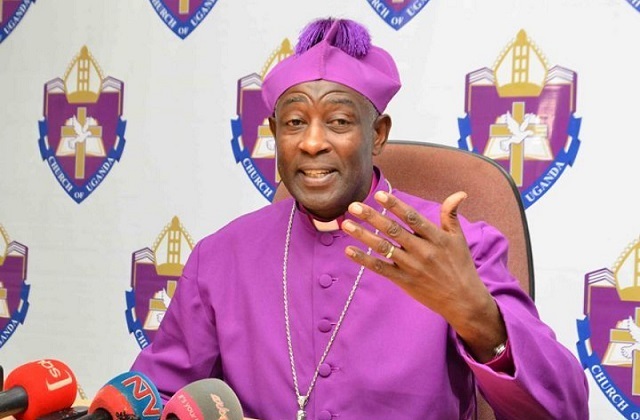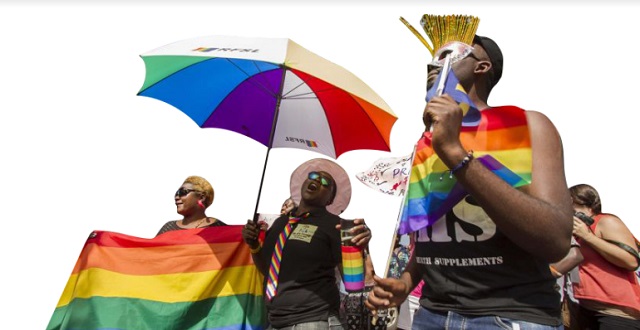
Museveni feels heat of homosexuality bill
COVER STORY | THE INDEPENDENT | Sign it. Sign it. Sign it. That is the clamour confronting President Yoweri Museveni from all directions regarding the Anti-Homosex
The latest salvo of demands that he signs it came this Easter holiday from leaders of various Christian faiths. In his Easter message delivered at the offices of the Province of the Church of Uganda at Namirembe in Kampala on April 06, the Archbishop of the Church of Uganda, Dr. Stephen Samuel Kaziimba-Mugalu, said Museveni should not be intimidated by anyone, including powerful and rich Western countries.
“These are matters of Uganda and should be decided by Ugandans who know what they want,” Mugalu said.
But President Museveni is equally being pressured not to sign the Bill into law. The main argument in this lobby is that signing it will unleash unwanted negative perceptions and actions against Uganda.
Internationally, the UN High Commissioner for Human Rights Volker Türk on March 22 said the adoption of what he called “draconian new legislation” targeting lesbian, gay and bisexual people “was devastating and deeply disturbing.” He called on President Museveni not to promulgate it into law.
“The passing of this discriminatory bill – probably among the worst of its kind in the world – is a deeply troubling development,” said the High Commissioner.
Meanwhile, Jon Miller, chairperson of the Open for Business, a global business coalition for companies dedicated to Lesbian, Gay, Bisexual, Transgender, and Queer/Questioning (LGBTQ) inclusion said the Anti Homosexuality Bill “will make it harder for Uganda to foster a dynamic and diversified modern economy that is attractive to investors, tourists, and skilled workers.”
The Spartacus Blog’s regular Gay Travel Index, which advises LGBT vacationers on the best places to enjoy themselves and where to avoid, lists only South Africa and the French island of Reunion as secure destinations in Africa for gay travelers. The worst-ranked countries are Niger, Mali, Lesotho, Cape Verde and Botswana. Uganda could be joining the list.
An editorial in the influential American newspaper, The Washington Post on April 02 pointed out that while generally the world is moving toward more acceptance of LGBTQ rights, Africa forms a near-unanimous block of intolerance.
“The Ugandan parliament’s discriminatory bill making it a crime to identify as gay is an abhorrent assault on personal freedom and human dignity, and the country’s president, Yoweri Museveni, should not sign it into law,” the editorial said.
“Sadly, while this bill is extreme, Uganda is hardly alone in its anti-LGBT posture,” the lead opinion in the Post said.
These editorials represent the views of The Washington Post as an institution, as determined through debate among members of the Editorial Board which includes journalists renowned for their expertise of varied issues on politics and policy, legal affairs, health care, foreign affairs, international economics, and society.
The editorial board usually highlights issues it thinks are important and responds to news events. On the anti-homosexuality issue, the editorial said, “Instead of advancing, many more (countries) are following Uganda’s lead and moving to toughen restrictions on the LGBT community.”
Uganda not alone
On her recent three-nation trip to Africa, U.S Vice President, Kamala Harris, spoke firmly in favour of homosexuals. While in Ghana, she said African countries must ensure “all people be treated equally.”
Ghana’s parliament is considering a Bill similar to Uganda’s. Harris told journalists that she had raised the issue of human rights in private talks with President Nana Akufo-Addo. Harris said she felt “very strongly” about supporting the development of LGBTQ+ rights in Africa.
“I will also say that this is an issue that we consider and I consider to be a human rights issue and that will not change,” she continued.
President Akufo-Addo appears to be in the same tight spot as President Museveni on the homosexuality issue. While speaking to journalists, he appeared keen to emphasize that although a proposed anti-LGBTQ+ Bill was currently making its way through the Ghanaian parliament, it “hasn’t been passed.”
“The attorney general has found it necessary to speak to the committee about it regarding the constitutionality or otherwise several of its provisions,” he said. “At the end of the process, I will come in, but in the meantime, the parliament is dealing with it.”
Ghana’s criminal code currently has provisions that consider homosexual liaisons to be “unnatural carnal knowledge” and a misdemeanour, punishable by up to three years in prison.
Catholics cautious
There has also been a tendency to differentiate homosexuality as a sin from homosexuality as a crime. The leadership of the Catholic Church in Uganda has taken a more cautious approach saying on March 29 that they will not comment on proposed legislation to punish homosexuality until its complete contents are revealed.

“Once we have the Bill in its entirety, as fathers of the Catholic Church, we will meet to discuss it and give the position of the Catholic Church in Uganda,” said Archbishop Paul Ssemogerere of Kampala.
“We shouldn’t condone what the church takes as evil; so homosexual tendencies and acts according to the teachings of the Catholic Church are sinful and Jesus came to fight sin,” he said. “If we are fighting immorality that’s fine, but you should know that Jesus came to fight sin but not to fight a sinner,” he added.
Archbishop Ssemogerere was echoing the words spoken by Pope Francis; the head of the global Catholic Church. Pope Francis has on many occasions criticized laws that criminalize homosexuality. He says they are “unjust” because “God loves all his children just as they are.” The Pope has said Catholic clergy should welcome LGBTQ people into the church.
“Being homosexual isn’t a crime,” Francis said during an exclusive interview on Jan.25 with The Associated Press. Archbishop Ssemogerere spoke during an archdiocesan gathering to celebrate the 10th anniversary of Pope Francis’ election as Bishop of Rome.
Christian fundamentalists
A report on Wikipedia says in its December 2020 report, the International Lesbian, Gay, Bisexual, Trans and Intersex Association (ILGA) found that homosexuality is criminalized in 67 of 193 UN member states and one non-independent jurisdiction, the Cook Islands, while two UN member states, Iraq and Egypt, criminalize it de facto but not in legislation.
In at least six UN member states Brunei, Iran, Mauritania, Nigeria (only northern Nigeria), Saudi Arabia, and Yemen it is punishable by death. All of the countries that use the death penalty base it directly or indirectly on the Islamic sharia law.
If Museveni signs the Anti-homosexuality Bill currently on his desk, Uganda will become the first and only country without Sharia law where homosexuality is punishable by death. Under the new law, anyone found engaging in “aggravated homosexuality,” defined as abusing children or vulnerable people, would be subject to the death penalty.

Under the 2023 Anti-Homosexuality Bill, anyone who identifies himself or herself as a homosexual commits a crime punishable by imprisonment. The proposed law makes it a duty for friends, family members, and landlords to report anyone in a same-sex relationship.
Journalists and media outlets found to publish or broadcast homosexual material also commit a crime. The same for anyone who funds LGBT-related activities. But, according to The Human Dignity Trust, which works to end laws that criminalize consensual same-sex sexual activity, experts say even where the laws are not enforced, they contribute to harassment, stigmatization and violence against LGBTQ people.
President Museveni in February 2014 signed into law a Bill toughening penalties for homosexuals. One of the clauses that Museveni objected to and was removed concerned criminalizing those who do not report homosexuals to the police. That clause has been reintroduced in the proposed new law.
However, Uganda’s Constitutional Court six months later in August annulled the anti-homosexuality law. Basing on a technicality rather than substance, the court ruled that the Bill was passed by MPs without the requisite quorum and was therefore illegal.
The fight over the latest anti-homosexuality law is, once again, expected to end up in court. Fox Odoi-Oywelowo, one of only two Ugandan MPs who voted against the Bill, said in an interview published on the Open Democracy website that his side will “raise the technicality but also raise the merits” of the issue.
“We need to know to what extent our judicial system is prepared to protect the rights of Ugandans,” he said.
Oywelowo who was among the petitioners in the 2014 Constitutional Court case says his side is this time determined to take it all the way to the Supreme Court.
“The Constitutional Court ruled that the 2014 anti-LGBTIQ law was null and void because it was passed without the requisite quorum in Parliament. But the 2023 bill contravenes several other court judgments, so that would be our first line of attack: unconstitutionality.
“But also, we need to interrogate the limitations that Parliament intends to impose on people’s rights. Are they demonstrably justifiable in a free and democratic society? I think it’s high time we had that discussion. But we should have that discussion on the merits, and let the courts pronounce themselves.”
He says pursuit of the anti-homosexuality law in Uganda is being promoted by influential Christian fundamentalism. He pointed out that the initial sponsor was Charles Onen, who used to be a Catholic priest, but the leadership of Parliament decided to ask MP Asuman Basalirwa (Bugiri Municipality) to sponsor the Bill because he is a lawyer, eloquent, and a better salesman for the bill than Onen would possibly have been.
He said re-tabling the Bill was first discussed in 2022 but the recent fallout between the Church of Uganda and the Church of England over blessings for same-sex couples was the spark.
“This has always been fuelled by Christian fundamentalism. Islam is a very conservative religion, but I don’t think they had the capacity to pull this off without their Christian brothers and sisters,” he said.
He says he was last year told that Pentecostal communities spent well over US$26 million in East Africa to promote the anti-homosexuality law. He says the push for the anti-homosexuality law has been on since 2011.

He says leading up to the first Anti-Homosexuality Bill in 2014, he knew that radical Pentecostal communities from the U.S. were sponsoring the introduction of anti-LGBTIQ laws throughout Africa. He says their initial point of entry was the (Uganda) National Prayer Breakfast, a collection of religious people who hold national level fellowships, bring in money, sponsor trips for MPs to Jerusalem, and indoctrinate them.
It is not clear how President Museveni will maneuver around the Bill this time.
Watching Museveni
President Museveni on April 02 called on African leaders to reject “the promotion of homosexuality.”
While speaking at an inter-parliamentary conference attended by MPs and delegates from 22 African countries at State House in Entebbe on “family values and sovereignty,” Museveni praised Ugandan MPs for passing the anti-gay bill and vowed “never to allow the promotion and publicization of homosexuality in Uganda, stressing that it will never be tolerated.”
The event was promoted by the Ugandan parliament, the African Bar Association and the Nigerian-based Foundation for African Cultural Heritage. Delegates could also attend the conference online, hosted by the US evangelical Christian organisation Family Watch International. The president of Family Watch, Sharon Slater, who also chairs the UN Family Rights Caucus lobby group, spoke at the event.
Museveni said homosexuality was “a big threat and danger to the procreation of the human race”.
“Africa should provide the lead to save the world from this degeneration and decadence, which is really very dangerous for humanity. If people of opposite sex stop appreciating one another then how will the human race be propagated?” he said.
Museveni’s statements were taken as a hint that he will sign the ant-homosexual Bill into law. In reality, however, President Museveni was repeating statements he wrote in 2014 just before signing the Anti-Homosexuality Bill. He was writing in reply to then U.S. President Barack Obama.
“Let me, again, put on record my views on the issue of homosexuals,” Museveni wrote, “Right from the beginning of this debate, my views were as follows.”
Then he listed them: I agreed with the MPs and almost all Ugandans that promotion of homosexuality in Uganda must be criminalized or rather should continue to be criminalized because the British had already done that, those who agreed to become homosexuals for mercenary reasons (prostitutes) should be harshly punished as should those who paid them to be homosexual prostitutes; and exhibitionism of homosexual behavior must be punished because, in this part of the World, it is forbidden to publicly exhibit any sexual conduct (kissing, etc) even for heterosexuals.
“If I kissed my wife of 41 years in public, I would lose elections in Uganda,” he said.
Then he signed the Bill and then it was annulled in court. What will happen this time?
 The Independent Uganda: You get the Truth we Pay the Price
The Independent Uganda: You get the Truth we Pay the Price


